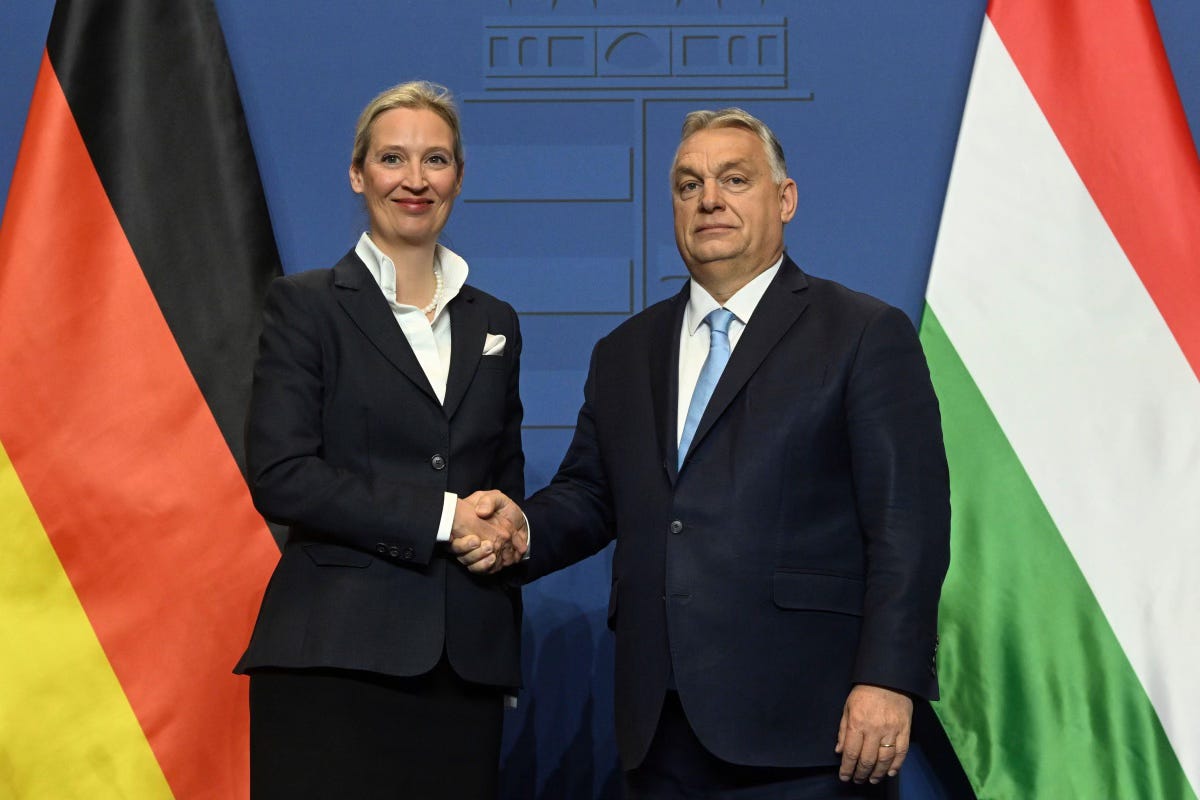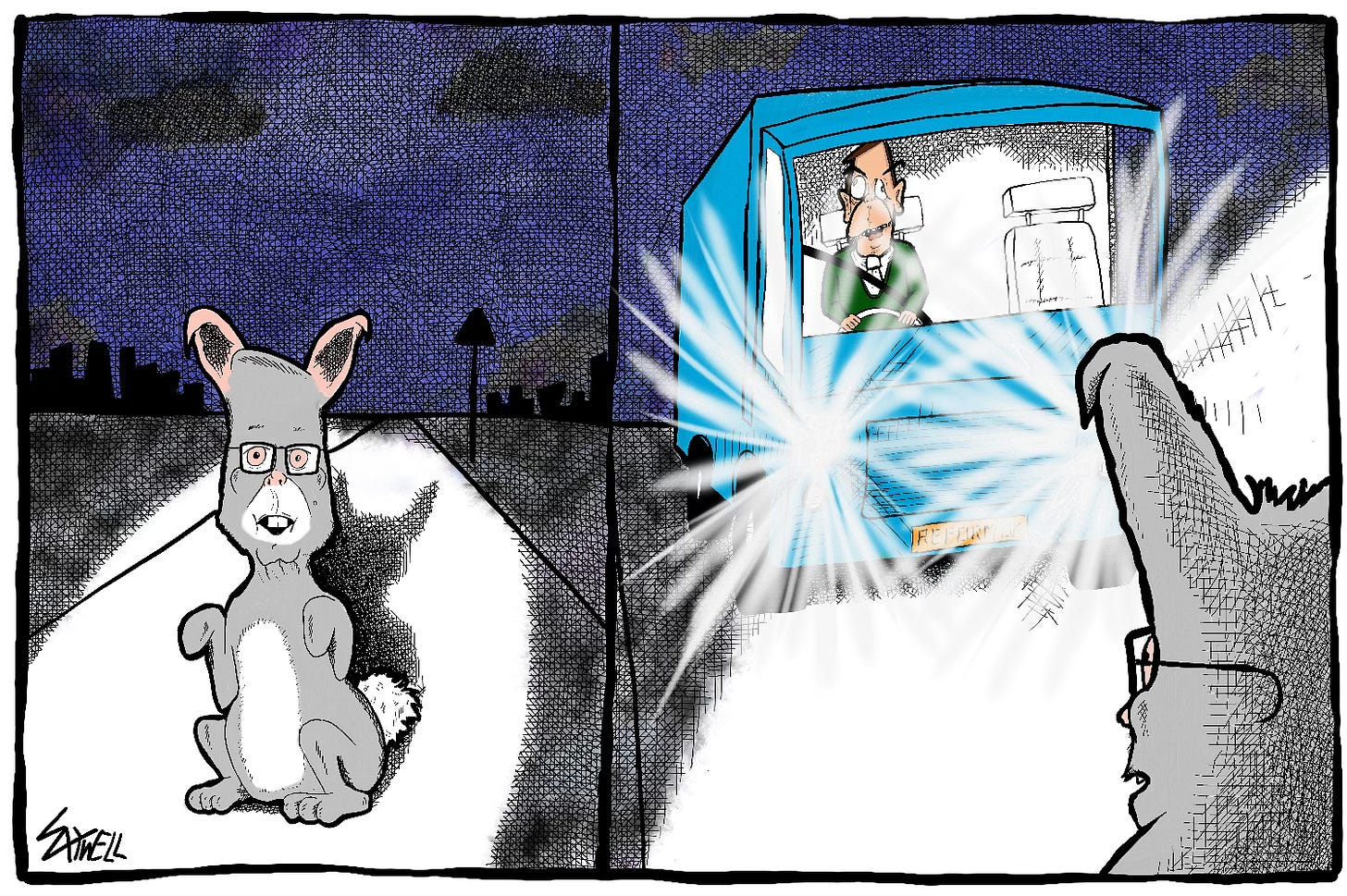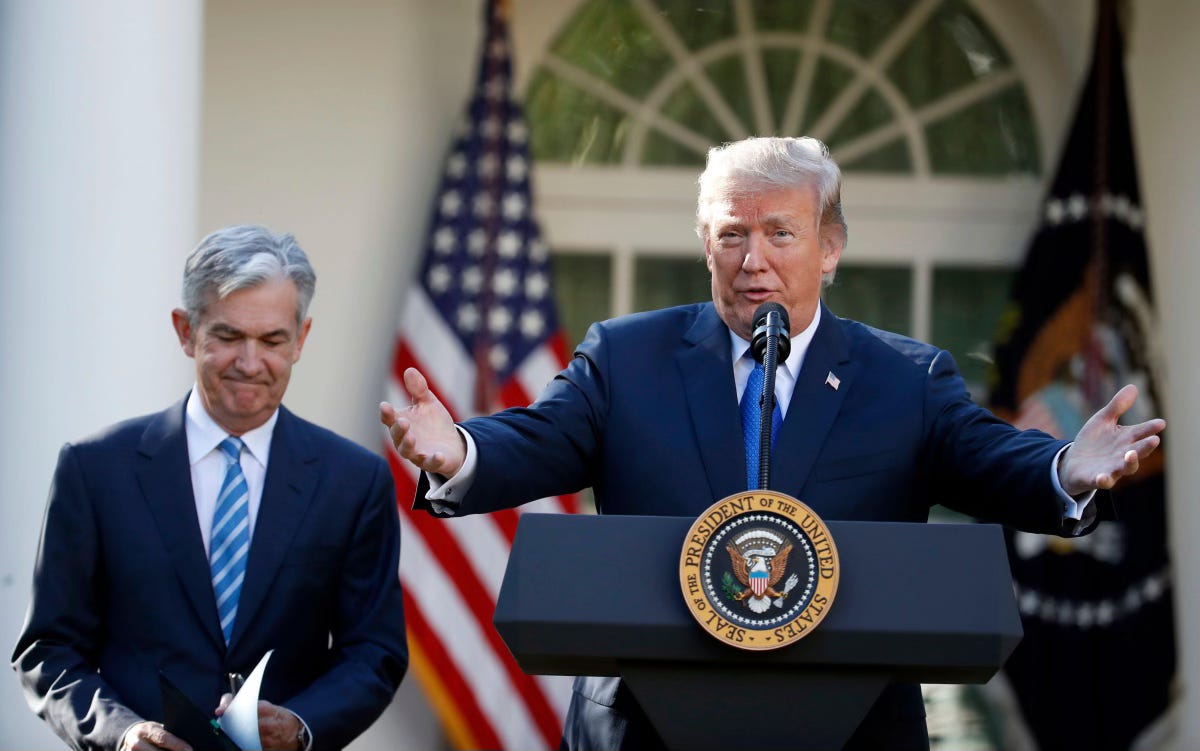A good and bad day for Germany's AfD party
There are striking parallels between what is currently unfolding in German and Austrian politics.
"It's completely clear that the AfD is the future," declared Hungarian Prime Minister, Viktor Orban, today, who praised the policies of Germany’s hard-right party on immigration as he hosted its leader, Alice Elisabeth Weidel, in Budapest.
This ringing endorsement will be music to Weidel’s ears ahead of Germany’s national election on 23 February, in which the AfD - which entered the Bundestag for the first time in 2017 - is poised to come second, securing around 20 per cent of the vote and overtaking Chancellor Olaf Scholz’s own centre-left party.
Despite its rising popularity, the German electorate remains deeply divided on the AfD. While a significant minority believe it is the only party that will take their demands for tougher immigration control seriously, many others still view it as a pariah party tainted by its revisionism towards the Third Reich. Polls indicate that two thirds of Germans regard it as a danger to democracy while just over 40 per cent want the authorities to shut the party down.
Unless the AfD performs even better than expected and wins a shock outright majority on 23 February, it faces a tricky path to power, thanks to all of Germany’s mainstream parties’ refusal to form a coalition with it.
Last month, Friedrich Merz, leader of the mainstream conservative CDU, the party expected to perform best in the looming election, broke precedent by relying on support from the AfD to get a motion on tougher asylum policy through the Bundestag. In the backlash that followed, Scholz accused him of tearing down the “firewall” that had been erected to keep hard-right forces out of power after the fall of the Nazi regime.
It’s worth remembering that Germans are not the only ones refusing to work with the AfD. The party has also been shunned by a number of anti-immigration European parties with seemingly similar agendas.
Both Italy’s Giorgia Meloni and France’s Marine Le Pen declared they needed a “clean break” from the AfD, expelling it from their right-wing bloc in the lead up to last summer’s European parliamentary elections, after the AfD’s lead candidate, Maximilian Krah, suggested that not all members of the SS were war criminals.
As the Times’s Berlin correspondent Oliver Moody writes, while national AfD figureheads such as Weidel usually take great care to come across as reasonable democrats, there is still considerable concern about “the party’s wilder elements or suspicions that it harbours a hidden agenda.”
Björn Höcke, the AfD’s leader in the eastern state of Thuringia, who has expressed a desire to deport a fifth of the population, has twice been fined for trotting out a banned Nazi-era slogan at rallies. Meanwhile, the national party executive is struggling to rid itself of its scandal-ridden youth wing, the Junge Alternative, which even senior AfD officials have labelled an “insane sect”.
Even so, the AfD is not entirely isolated. It has Orban on side, and it is buoyed by its endorsement from Trump’s new right-hand man, Elon Musk, who recently proclaimed: “Only the AfD can save Germany”.
Another party the AfD has been keen to build alliances with in Austria’s hard-right Freedom party.
In fact, there are striking parallels between what is currently unfolding in German and Austrian politics. Democracy is being tested by growing disillusionment with mainstream political parties, paired with the rise of the hard-right and the refusal of mainstream parties to work with them.
Early elections were called in Germany after the longstanding ideological differences in Scholz’s coalition - between his centre-left Social Democratic party, the liberal Free Democrats and the Greens - became too difficult to reconcile. And, if Merz comes out top in a couple of weeks, but the AfD deprives him of a majority, he likely faces two choices: break the taboo and agree to work with the hard-right or, much like Scholz three years ago, form an unnatural union with other mainstream parties that leads to further political deadlock.
The situation distinctly resembles the political rollercoaster Austria has been on since the shock victory of the anti-immigration, eurosceptic Freedom party in September’s elections.
Although the Freedom party came first, with 28.8% of the vote, it lacked a majority and its leader, Herbert Kickl, struggled to find other parties willing to work with one founded in the 1950s by former members of the Nazi paramilitary police.
Kickl’s untouchable status meant it fell on the mainstream conservative ÖVP party, the centre-left Social Democrats, and the liberal Neos to attempt to form an awkward coalition.
When these talks fell apart in early January, and the ÖVP reneged on its campaign promise to never work with Kickl, the Freedom party leader again had a chance to become Austria’s first hard-right chancellor since the Second World War.
This afternoon, however, Kickl confirmed that his coalition talks with the ÖVP have collapsed.
The AfD has been watching developments in Vienna keenly, with the party’s co-leader, Tino Chrupalla, insisting that the Freedom party’s success shows “our time on the government benches will come sooner rather than later”.
Caitlin Allen
Deputy Editor
ON REACTION TODAY
David Waywell
The Fable of Keir Rabbit
Anthony Peters
The Fed’s independence is under siege
ALSO KNOW
Ukraine-Russia negotiations to start “immediately” - Donald Trump announced this evening that he has held a 90-minute phone call with Russian President Vladimir Putin in which they agreed to start negotiations to end the war in Ukraine "immediately". Both Trump and Kremlin spokesperson Dmitry Peskov said the two presidents agreed to visit each other's nations during the call. Volodymyr Zelensky also held an hour-long call with Trump this evening, according to the Ukrainian president's office.
NATO membership not realistic for Ukraine, says US - While Washington is committed to a sovereign Ukraine, “chasing the illusionary goal [of NATO membership] will only prolong the war and cause more suffering,” said US Defense Secretary Pete Hegseth today, while speaking at a meeting of the Ukraine Defense Contact Group in Brussels. He added that it’s not realistic to return Ukraine to its pre-2014 borders, before Russia’s invasion of Crimea, that US troops won’t be deployed to Ukraine and that Europe must take more responsibility for the continent’s security.
Reeves prepares for gloomy forecasts - When the Office for Budget Responsibility, the UK’s fiscal watchdog, delivers its verdict on the state of the country’s public finances next month, it is expected to significantly downgrade its previous forecasts for economic growth and wipe out £9.9 billion of the government’s headroom, reports Bloomberg. The government has been trying to persuade the OBR to include the impact of its broader reforms in its forecast, such as its overhaul of the planning system, but has not succeeded.
Prevent’s botched handling of Amess killer - Sir David Amess's killer was removed from the government's Prevent anti-terror programme too quickly and its handling of him was "sub-optimal", a review commissioned by the Home Office and Counter Terrorism Police concluded today. Ali Harbi Ali, who murdered the Conservative MP for Southend West at a constituency surgery in October 2021, first became known to the Prevent programme in October 2014 but his case was closed in 2016.
No strategy to tackle tax evasion - HMRC is significantly underestimating how much tax it loses to evasion each year. A report from the public accounts committee of MPs said today that it could be up to £5.5bn, adding that HMRC is not sufficiently curious on the true scale of evasion, with no strategy for tackling it.
FIVE THINGS
What is behind France’s AI boom and is its future dwindling already? asks UnHerd
In defence of birth right citizenship. The Wall Street Journal
The New Scientist explores why quantum computers are being held back by geopolitical tussles.
The Financial Times on the UK trader who has won the fight against extradition to the US on insider trading charges.





